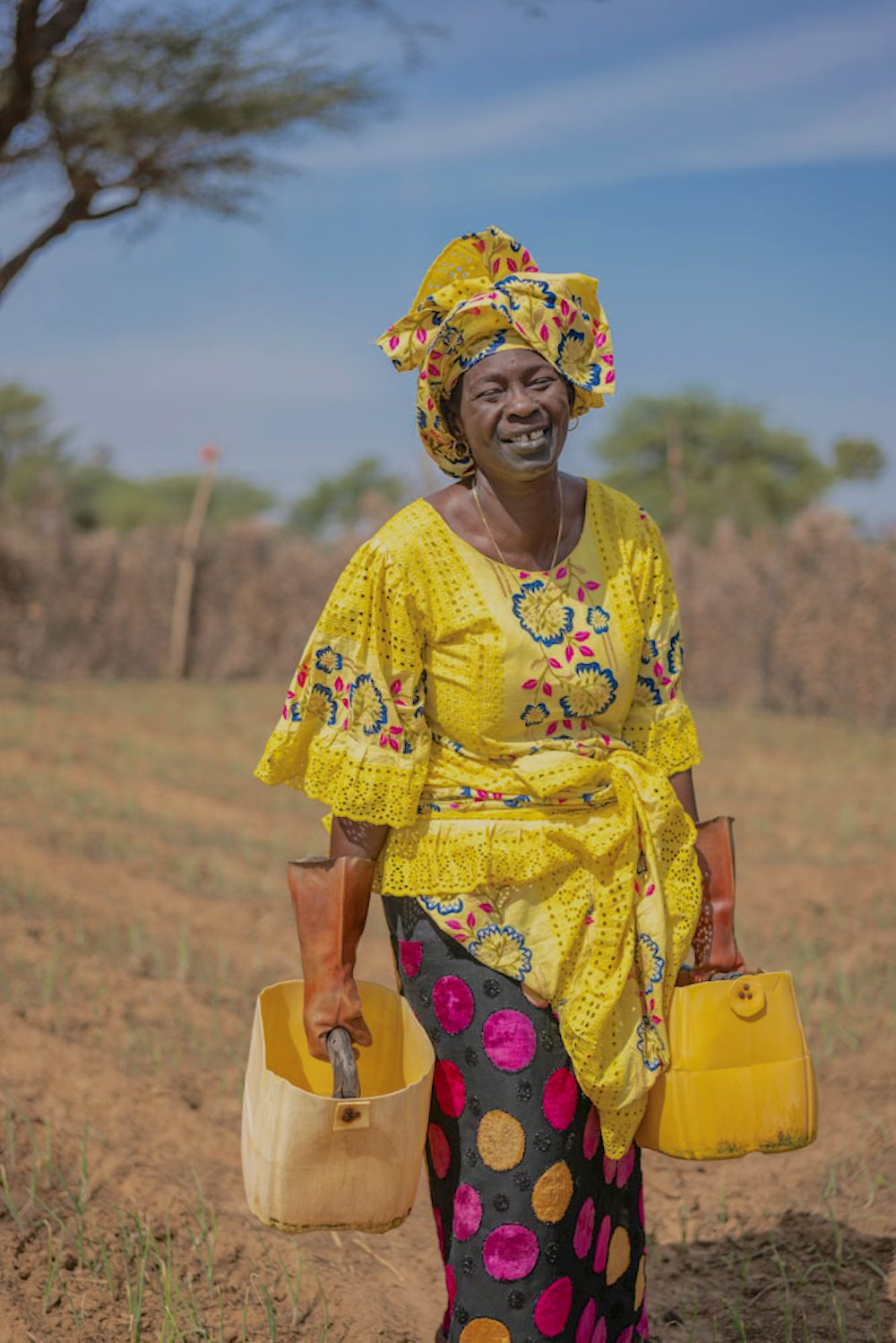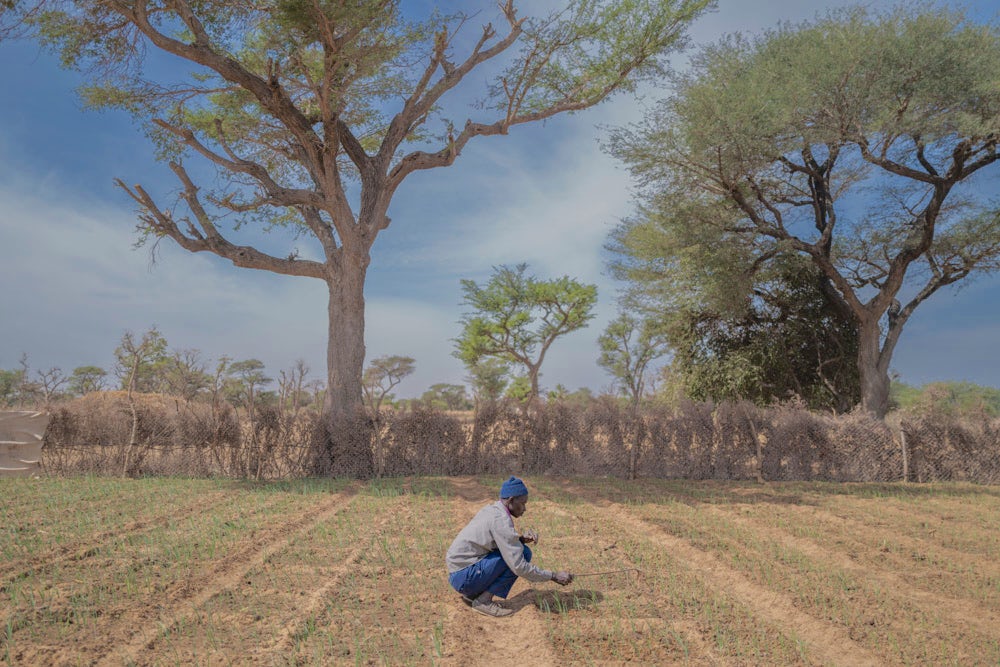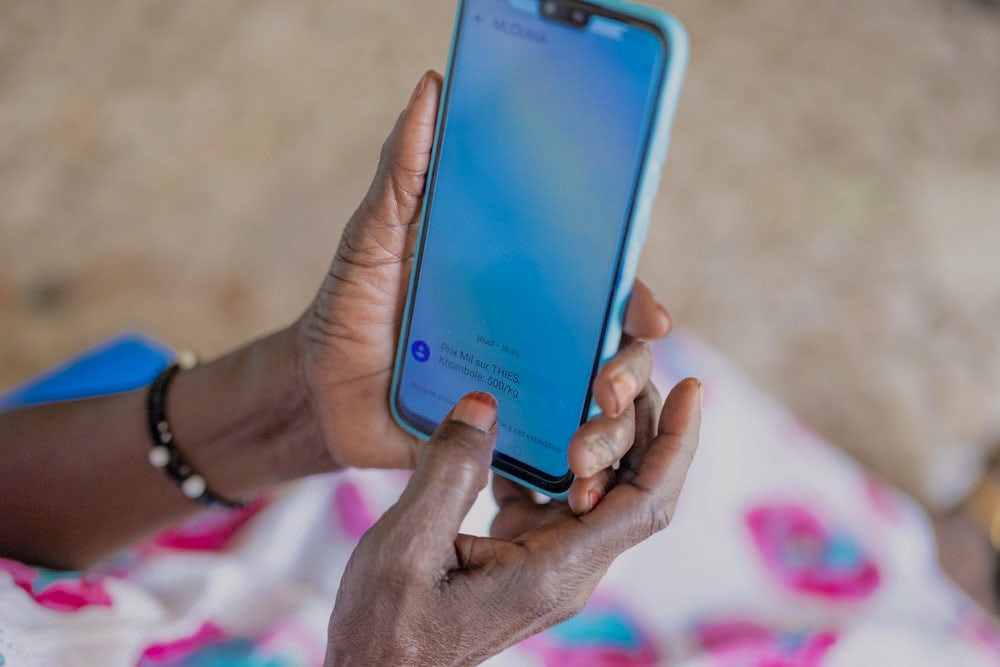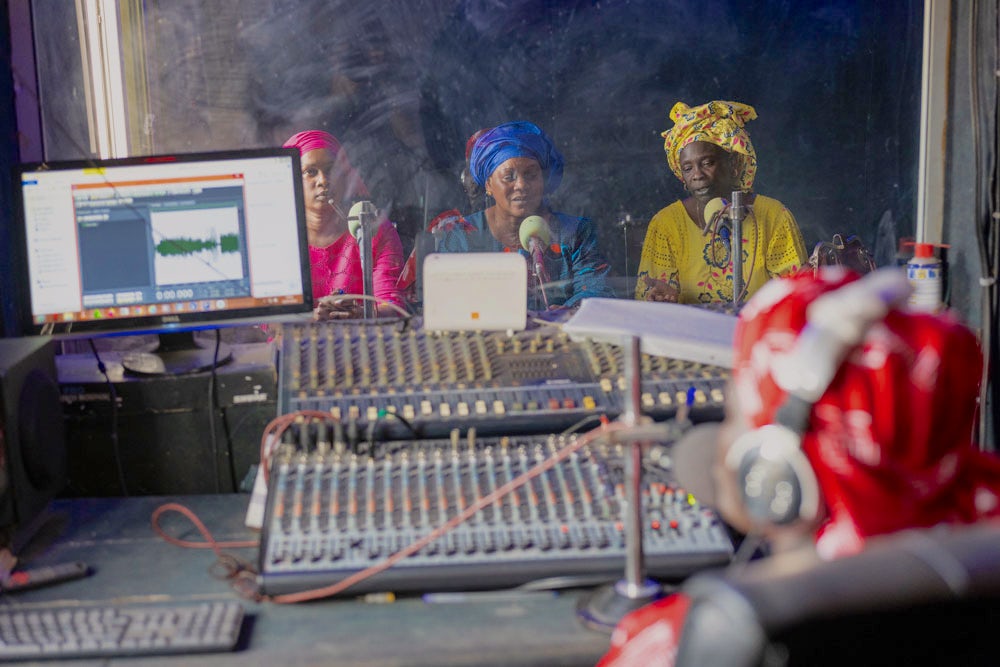Maty Tine has become a pillar of her community in western Senegal — a progressive farmer, environmental advocate and radio presenter in her local dialect. But, at 66, growing into this role has been a long journey.
“I have deep regrets,” Maty said of the fact that she dropped out of school before high school. It was an era when there were few women in public service and girls were encouraged to marry young. “I could have been a minister or local government official because I was very clever.”

Now a mother and grandmother, she grows beans, hibiscus, millet, onions and peanuts, using the harvests to feed her family and selling the surplus, when she has it, for income.
“That’s the only activity I know,” Maty said. “When I finished studying I did not get any degree that qualifies me for a job which allows me to gain income to live with. So, I decided with my husband to do farming and livestock. After my husband died I continued farming and put emphasis on my kids' education.”
Rain patterns have shifted in the dry, Sahelian region where Maty lives, and she and other farmers are having to adapt. As a child, she remembers planting rice and seeing fish swim in the paddy fields. Crops were plentiful and they didn’t often go hungry. Sadly, all that has changed: Now, when seasonal rains are late, her whole community grows anxious.
“We worry about all our investments,” Maty said. “If it does not rain we lose everything.”
The community also worries about the unreliability of the weather — about off-season downpours and locust invasions that lay waste to groundnuts. Drought has, in the past, forced adults like her to look for temporary work in Dakar, the Senegalese capital, just to earn enough money to feed their children. As Maty puts it, their lives depend on rain.
Climate information is particularly important in this context. Being without it is like someone finding the way to Dakar blindfolded, explained Daouda Ndao, Heifer Senegal’s director of programs. With it, farmers can judge when to sow seed and which seed to use — long or short cycle. They can also judge when to sprinkle fertilizer.

In partnership with a local farmers’ association, ARLS, of which Maty is a member, Heifer’s Climate Services for Resilience and Productivity project (CSRP) is helping farmers adapt to the changing climate, providing training, short-cycle seeds and — necessarily — weather information through a service that sends agriculture and weather alerts to rural farmers via text and voice messages.
“Climate change affects everything. We have to talk about it. There is no choice. People need to know how to interact with the environment.” — Maty Tine
Just before we visited Maty, during the dry season when all the farmers in the area had their harvests drying outside in the sun, they were notified about the prospect of unexpected rainfall and were able to move their crops inside in time.
“I never received such weather information before,” Maty said.
Farmers also receive texts on fluctuations in the price of crops like beans and hibiscus, to help them make the most of the market, and support from agricultural extension officers. The advice they have been given has improved crop storage, land management and earnings.
“We decide when we sell according to the information we get,” Maty explained.

Two years into the project, Daouda notes the improvements that the combination of weather information and short-cycle seeds — engineered to make the most of a shorter, two-month rainy season, down from the previous three months of rain — make. The families Heifer works with in Senegal live off an average of $1.41 a day. Inputs of good quality seed, for profitable crops like peanuts, with support to cope with climate variability and take advantage of the market, lift their income.
“After just one harvest, they can cover gaps in their living income because peanuts are very expensive,” he said. A supply of 50 kilograms, about 110 pounds, of peanut seeds multiplies 10 times for the harvest. One or two years of growing them can close the gap in family finances. Seeds are also distributed for maize, sorghum and sesame, adapted specially to different regions of Senegal by research institutes.
Of the project’s impacts, however, the most significant may be equipping farmers like Maty — once bound by the whims of the weather — to take an active role in the fight against the climate crisis.
Through her involvement with ARLS, Maty was trained to become a reporter on its local radio station, Gindiku, which has 85 women reporters from different villages presenting programs in their own languages. Today, as a radio presenter, Maty conveys information on agriculture and the environment as part of ARLS and Heifer’s climate information initiative, discussing topics like climate change, reducing the use of plastic and avoiding the cutting down of trees.

“Climate change affects everything,” Maty said. “We have to talk about it. There is no choice. People need to know how to interact with the environment.” Most recently she was preparing a program on the impact of greenhouse gases, and she’s covered civic and health issues too — birth certificates, educating girls and COVID-19.
In her role, Maty is recouping some of what she wishes she would have achieved in her youth — and it has turned her into something of a local celebrity.
“I always wanted to be a model, a leader, to be useful for my community,” she said. “I really like it when people stop me on my way and greet me. The radio makes me famous. … I have become a sort of star in the community. That makes me feel very proud.”